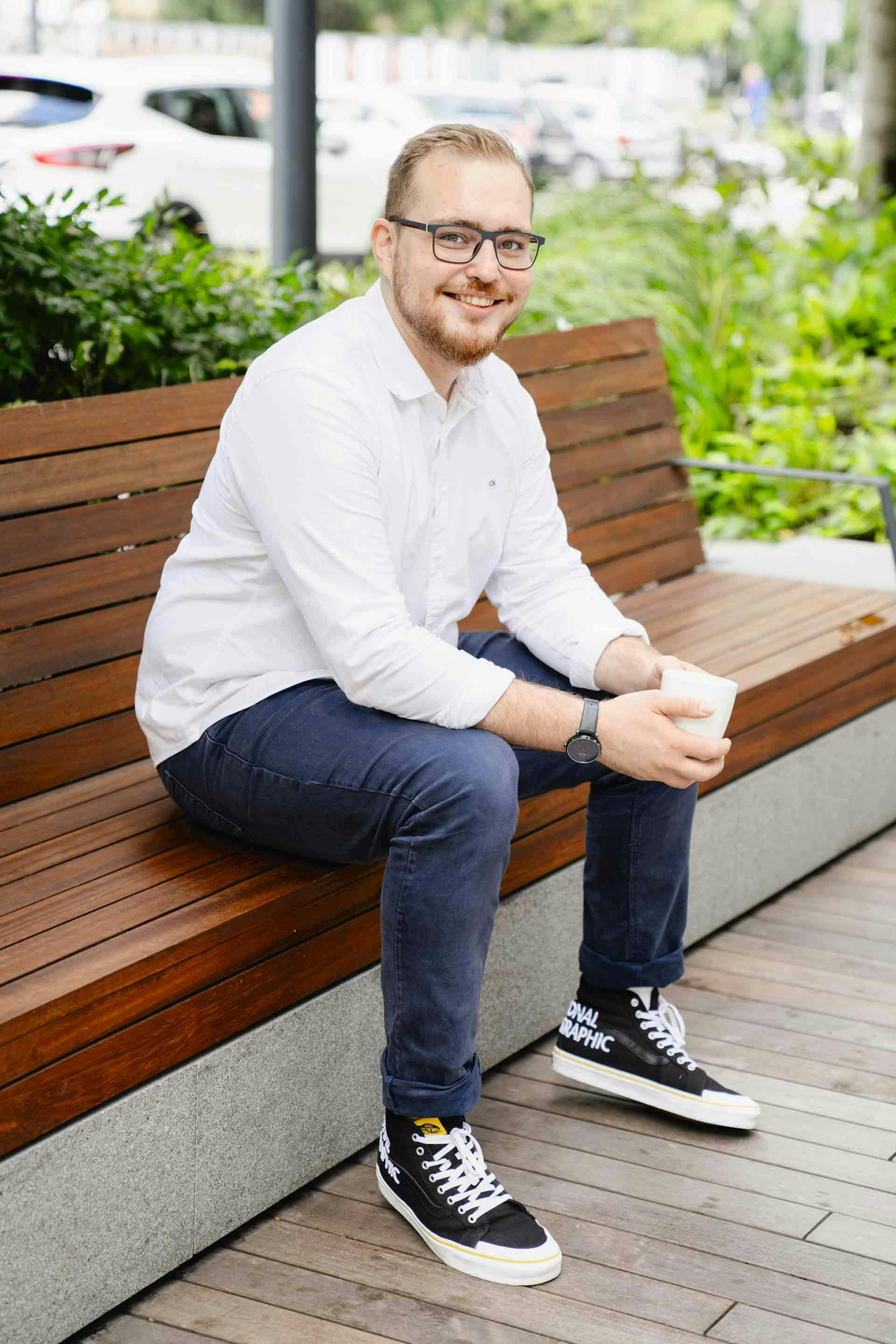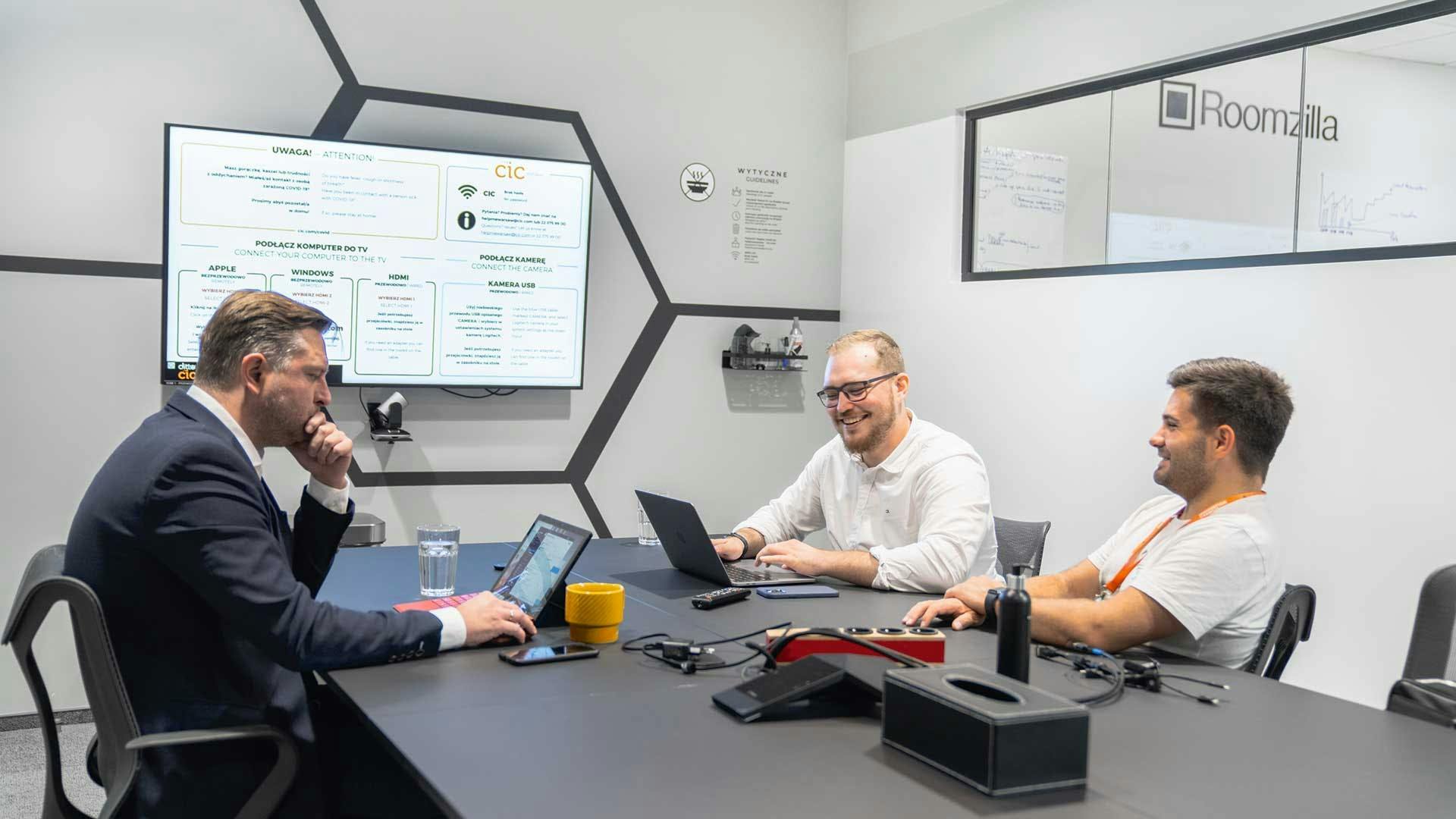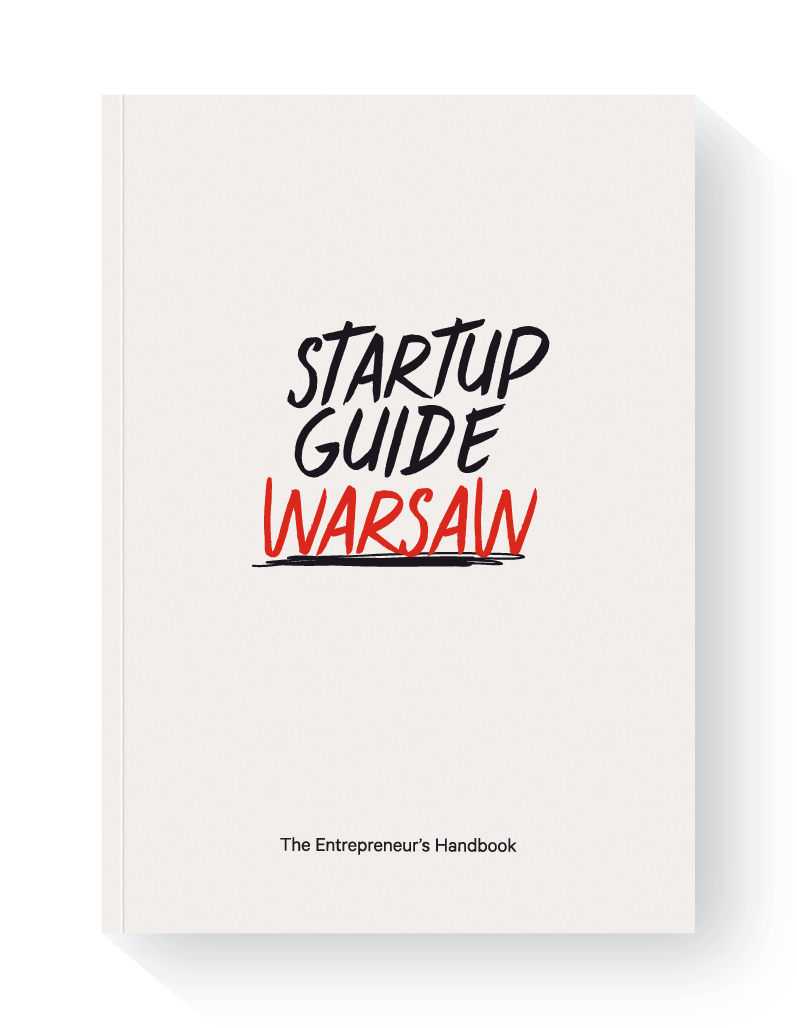Vadym Melnyk shares his journey of founding Dronehub
riginally from Ukraine, Vadym Melnyk was interested in robotics from an early age, winning several national and international competitions while still in high school, both in Europe and in the US during a scholarship. He went on to study computer engineering at the University of Information Technology and Management in Rzeszów, Poland, where he started collaborating with Microsoft. He founded Cervi Robotics (later rebranded as Dronehub) in his final year and dropped out before graduation to focus on scaling the company. In 2020, he was listed in Forbes 25 Under 25, proving you don’t need a degree to be successful.

Vadym Melnyk, founder of Dronehub. Photo: Daniel Król
What did you gain from being Microsoft’s student partner?
Microsoft was supporting young leaders. We were giving speeches at national and international conferences, learning cutting-edge Microsoft technologies, so it was really cool. We built our name, our credibility, thanks to Microsoft.
You were also Chief of its Unicorn Division, right?
I had a choice to become the regional leader or create something new, so I decided to create something new: a program to support young startups, match them with venture capital, and give them Microsoft Cloud, everything Microsoft can do for startups in Central and Eastern Europe. In the beginning, the name was fairly corporate and boring, and I negotiated to change it because I wanted to have a business card saying “Unicorn Division.” I had a group of interesting, outstanding people working with me, scouting interesting startups, mostly in software. By then, I had lots of experience with startups. I’d won lots of different competitions and knew lots of venture capitalists and business angels, and how to scout startups. It was basically my experience and knowledge that led to the creation of this program.
Tell me about the early days of Cervi Robotics.
In 2015, we were doing custom drones for defense, police and large enterprises. It started growing very well, but at some point we lost focus. We were doing lots of things connected with robotics, but they were factory automation, Industry 4.0 projects. Basically, outsourcing for large corporations and getting very good revenue. In 2017, we received our first large contract from the European Space Agency, which also works with the low space where airplanes and drones fly. They needed a solution where a drone can land autonomously without an operator and change the battery, and they chose us as joint partners.
In 2017, we built our first working prototype. The best thing about cooperating with these public agencies is that the IP stays in the company. We had a tough decision: focus on what we were doing, like outsourcing, or build a new product. That’s when we started investing all the money we earned into Dronehub. In 2019, after some large grants, some private investments and our own money, we built a fully working product. Our first customer was PKN Orlen, the largest oil and gas company in Central and Eastern Europe. We sold the Dronehub system to automate monitoring of critical infrastructure in their Płock refinery, and it was a big success. After that, we started getting more customers. In January 2020, we decided to refuse all contracts not connected to Dronehub and focus purely on automated drone platforms and the software.
Because you thought Dronehub would be more profitable?
No. In January 2020, we had contracts for almost three million złoty for outsourcing, robotics and drones, but not connected with Dronehub. It was a very hard decision because at the time we had only one customer. But we realized we had something unique, something which solves a real problem. We had a few potential competitors in the US and Israel, but we were far ahead of them. We decided it was the ideal moment to focus on the product and build a product company. Time has shown that it was a bold but good decision. Today we are the leader of drone-in-a-box systems in Europe.
Warsaw is a good place to look for talented C-level managers.
Why were you so far ahead of the pack?
We were solving a real problem from the very beginning, and we had a real customer, the European Space Agency, which helped us make the right decisions. When we started working with them, we received a grant for just over one million euros from the European Commission to work on autonomous hubs, but for cargo deliveries. When we finished in 2020, we were the only company in the world that had this three-in-one drone infrastructure for different kinds of missions: stationary monitoring, mobile monitoring and cargo deliveries. Also, we didn’t create a closed ecosystem. We want to integrate with all drones on the market. This is our competitive advantage because our competitors have to focus on everything from software, through mobile and ground infrastructure, to drones, legislation and sales. We don’t have to focus on absolutely everything because our drone partners are doing that and we just integrate with them, so it helps us iterate faster.
What challenges have you faced?
Like they say, “the hardware is very hard.” We had lots of problems building a robust product that works one hundred percent of the time. If we build a drone station and the drone lands forty-nine times out of fifty, that’s not enough. We had to do eight iterations, which cost a lot. Every iteration is €200,000 to €250,000. We put a lot of money into R+D. The challenge we’re facing right now is certification, because we are starting to sell to the defense and military market and the number of certificates you need is enormous. But our biggest issue is sales. Our sales funnel is very long, between six to nine months. So, we’ve started working on the cloud platform to automate data processing, and we’ll release the first public beta in January 2022. This will give us more predictable revenue. We’ll be bringing in partners not only for the ground infrastructure, which they usually buy once, but also for software.
What fundraising have you done?
In 2020, when we decided to focus purely on Dronehub, we closed an investment round for 2.2 million złoty from VC and business angels. In late 2020, Dronehub received a $1.9 million grant from the Polish National Centre for Research and Development to create mobile drone infrastructure for automatic orthophotos (aerial photos). Now, the Polish Agency for Enterprise Development has given us a grant for eleven million złoty to build our factory and go from low-level to mass production, building up around five hundred docking stations per year. We’re also closing a VC round for four million euros, late seed or A round. Right now, we can only make a few dozen hubs per year. Now, we’ll be able to manufacture five to six hundred, more than enough since one hub sells for around €100,000.
What have been your biggest milestones?
Winning Forbes 25 Under 25 and switching from outsourcing to building my own product. Previously, I was afraid to do that, because services are more predictable. With a product, you need to invest a lot first, and you’re not sure if in the end there will be something profitable. Now, Dronehub is one of the leaders, not regionally but internationally, with this autonomous drone technology. I’m very happy that at twenty-seven, I have built a company doing something unique.
If you want to learn to do business, do services: outsourcing, a software house, something like that. But if you want to build a product, do that from the start.
What do you like about being in Warsaw?
It’s good for networking because all of the large corporates and public institutions – most of our Polish clients – are here. We opened our Warsaw office in 2020. In February 2021, when we grew big, we relocated to the Varso Tower complex, so Dronehub is now at the very center of the Polish business, startup and innovative environment. I have my management and sales teams here, and we move forward quickly with deals.
Our headquarters for R+D and production is in Rzeszów, South-Eastern Poland, at the heart of the Aviation Valley, so it’s easy to get top-quality engineers. Warsaw is a good place to look for talented C-level managers. It’s a perfect place for business, because the cost of living versus the quality of employees is better than, say, the Netherlands, which is more expensive. Another good thing in Poland is the amount of support money from the European Commission and the National Centers for Research and Development. Without that, we wouldn’t be where we are now, because the amount of money here for A, B, and C rounds is limited compared to the US, Israel or Western Europe. There’s tons of money for seed, usually €250,000 to €300,000, but you can’t do a lot with that.
Why does Poland lack venture capital?
It’s complex, but Poland has been a free-market economy for only thirty years, after half a century of communism. There aren’t many large private companies that have generated huge amounts of money and been here for generations, like family offices in the US or UK.
Any advice for other entrepreneurs?
If you want to learn to do business, do services: outsourcing, a software house, something like that. But if you want to build a product, do that from the start. Most entrepreneurs think “I’ll start by building a software company, do some outsourcing, earn money, gain experience, and then build my own product.” In my experience, that usually never happens. I have a dozen friends who started software houses, and now it’s too hard for them to switch from outsourcing to product. So, if you want to build a product, build a product, and have a customer who won’t just pay you but can tell you if you’re moving in the right direction.
This article is included in Startup Guide Warsaw, alongside more founder stories and expert insights. Order your copy now!
Written by Kate Williams
Repackaged by Anastasia Ilcov
Photography by Daniel Król

